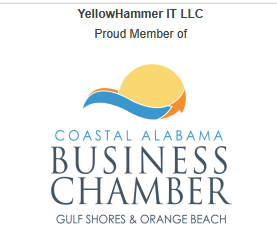In the competitive online landscape, search engine optimization (SEO) plays a vital role in improving the visibility and discoverability of your business website. As a business owner, understanding the basics of SEO can empower you to make informed decisions and optimize your website to attract organic traffic, increase conversions, and drive business growth.
In this article, we will explore the basic aspects of SEO that business owners need to know to begin unlocking the potential of their websites.

Our 9 Factor SEO Optimization Plan
Keyword research is the foundation of effective SEO. It involves identifying the search terms and phrases that your target audience is using to find products or services similar to yours. By conducting thorough keyword research, you can optimize your website content and metadata to align with those keywords. Tools like Google Trends can help you identify relevant keywords with high search volume and moderate competition.
On-page optimization focuses on optimizing individual web pages to improve their search engine rankings. This includes optimizing page titles, meta descriptions, headings, URL structures, and content. Incorporate relevant keywords naturally within your content while ensuring it remains valuable and engaging for your audience. Pay attention to formatting, use descriptive headings, and include internal and external links to enhance the user experience and improve search engine visibility.
High-quality and relevant content is at the core of successful SEO. Create informative, engaging, and shareable content that resonates with your target audience. Valuable content increases the likelihood of other websites linking to yours, which positively impacts your website’s authority and search engine rankings. Regularly update your website with fresh content such as blog posts, articles, case studies, and videos to demonstrate your industry expertise and keep visitors engaged.
A well-structured website with intuitive navigation is crucial for both users and search engines. Ensure that your website has a logical hierarchy with clearly defined categories and subcategories. Implement a user-friendly menu and breadcrumb navigation to guide visitors and search engine crawlers through your website. A clear website structure not only enhances the user experience but also helps search engines understand the relevance and hierarchy of your content.
With the majority of online searches now happening on mobile devices, optimizing your website for mobile is no longer optional—it’s essential. A responsive design that adapts to various screen sizes and provides a seamless user experience on mobile devices is crucial for SEO success. Google’s mobile-first indexing prioritizes mobile-optimized websites, so ensure your website loads quickly, has easy-to-click buttons, and delivers a smooth browsing experience across all devices.
Building high-quality inbound links from reputable websites is an important aspect of SEO. Earn links naturally by creating exceptional content that others will want to share and link to. Seek opportunities to collaborate with influencers, industry publications, and complementary businesses to gain relevant backlinks. Avoid engaging in unethical practices like buying links or participating in link schemes, as these can result in severe penalties from search engines.
Ensure your website is accessible to search engine crawlers by fixing any crawl errors. Create an XML sitemap and submit it to search engines to help them understand your website’s structure. Optimize your website’s robots.txt file to guide search engines on which pages to crawl and index. Implement schema markup to enhance search engine understanding of your content.
Optimize your website for local searches if you have a physical presence or serve a specific location or region such as the Gulf Coast. Include your business name, address, and phone number on your website and other online directories. Encourage positive reviews and ratings from satisfied customers on platforms like Google My Business.
Regularly monitor and analyze your website’s performance using tools like Google Analytics or contact your Managed Service Provider (MSP) for detailed analytics about your site traffic. Monitor key metrics like organic traffic, bounce rate, conversions, and keyword rankings. These are just a few analytics to start with which can provide valuable insights into your visitors’ behavior, traffic sources, popular pages, and conversion rates. Use the insights to identify areas for improvement and refine your SEO strategies
Final Thoughts
SEO is a powerful tool that can significantly impact the visibility and success of your business website. By understanding the importance of keyword research, on-page optimization, quality content, website structure, mobile optimization, link building, and monitoring, you can enhance your website’s visibility in search engine results, attract targeted organic traffic, and ultimately drive business growth. Embrace the tools that can help you optimize your online presence.
For more on SEO, check out our article: Power Up Your Online Presence with Digital Marketing
Let us know how we can develop an SEO plan that's right for your business.
More Articles...

The Power of a Domain Name: A Guide for Business Owners

Finding the Right IT Company: Choosing an MSP for Business Owners
Vendor Tracking System for HOAs

Setting Up Your Instructional Design Shop

Why Using Email with Your Domain Name Matters

Let Us Host Your Next Video Conference: Stress-Free Solutions

We Provide Expert SEO Content Creation Services

Top 10 Questions to Ask Your Security Provider About AI Search




